I’m afraid of heights. Like, really afraid. Irrationally afraid.
When I was around 6, my parents took me up the Swiss Family Robinson Tree House at Disneyland. (I’m dating myself here, ‘cause now it’s the Tarzan Treehouse.)
As we climbed higher and higher and higher, I freaked out. Lost it.
I remember clinging to the trunk for dear life, panicking. Mom and dad couldn’t calm me down.
Similar thing happened a several years later at the Space Needle in Seattle.
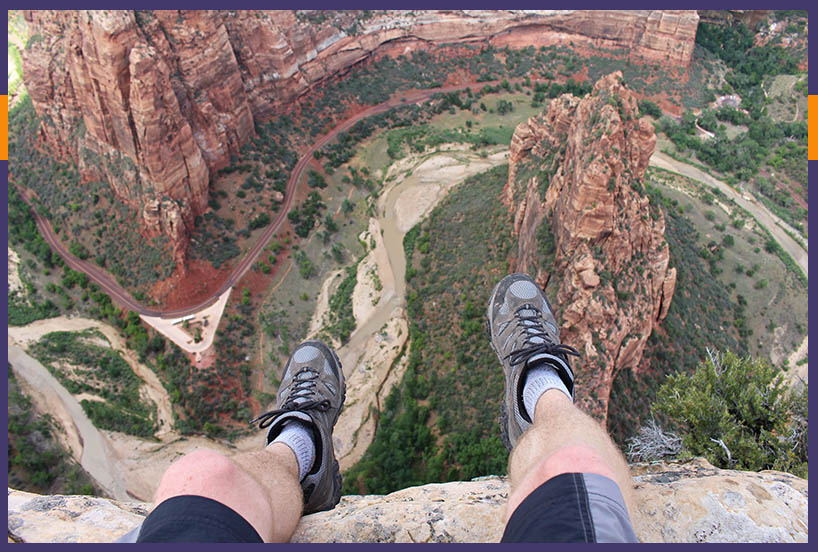
Where does this intense fear come from? I’m pretty sure I was born with it.
But why? How?
Here’s an answer that sounds, well, kinda out there:
Phobias may actually be memories of trauma passed down genetically from our ancestors (you know, our people who lived before we did).
Feeling connected to history?
Recently, my good friend Emmalee told me this story:
“All growing up, I’ve loved tap dancing. I’m even a tap teacher.
“But just two weeks ago, I was reading a biography of my 3x great-grandfather William Ralves from England. It mentions that he spent his daughter’s wedding English clog dancing.
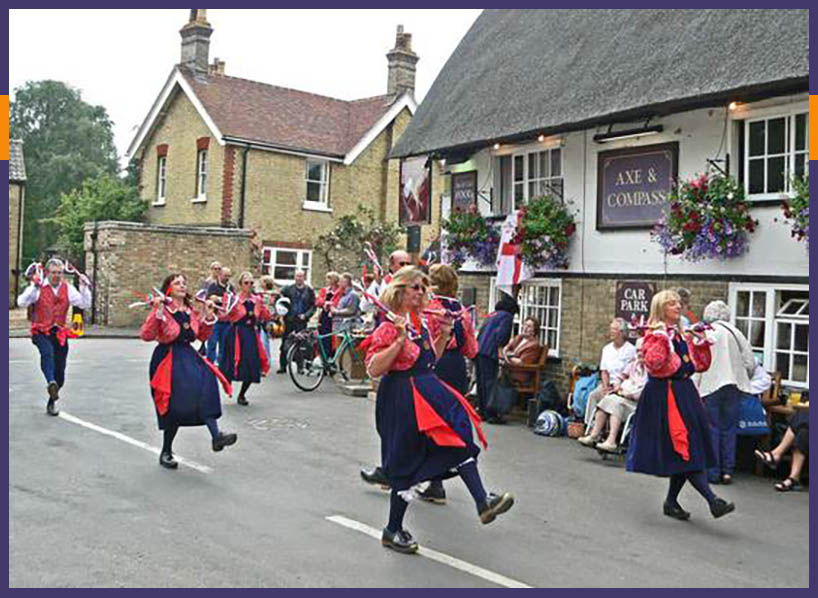
“I was floored.
“Tap dancing is a very American art form, but it’s roots are in clog dancing.
“So here’s this connection to this man who was born 200 years ago, and we have the same interests. To see that this is a family thing, I can’t even describe it.”
This got us talking – why do we feel these connections to people who lived so long before us and who we never knew? Why would it mean something to her or to me to share an interest in common with a dead person?
Well, that made me think about – rap.
What 50 Cent taught me about family history
In 2011, Curtis James Jackson III, better known as rapper 50 Cent, appeared in a VH1 documentary called “50 Cent: The Origin of Me.” In it he travelled back to Edgefield county, South Carolina, where his family is from.
His people were enslaved there.
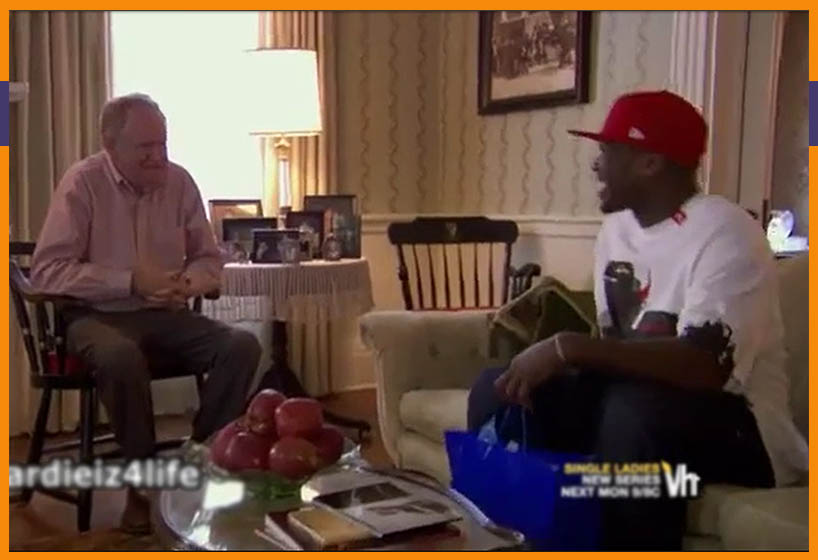
As he walked the town and plantation and met the great-grandchildren of the people who enslaved his people, you could tell it was meaningful to him.
At one point he says: “Discovering history from my actual family line gives me a stronger interest in history opposed to some of the things that they taught in classes that didn’t directly relate to me.”
Because it directly relates to him.
I think that’s a key.
“Knowing where I came from helps me understand who I am now,” my friend Emmalee continued. “You hear their stories, see where they’re from, and how it led to where you are. I find it amazing how you can feel so connected to your ancestors.”
I think most people feel the same way, even people who hated history in school.
If someone learns they have people who were in Pearl Harbor, all of a sudden, Pearl Harbor becomes very interesting. That shift can take the mindset from “Ok, that thing happened a long time ago” to “Wow, I’m connected to this, I’d like to be there.”
But, why do people crave this connection?
We crave this connection to history
“I feel like it’s in your makeup, in your DNA,” Emmalee said about those feelings of connection. “It’s innate to want to know who you are and where you came from.”
It’s interesting that she said this, because a man named Alex Haley – who wrote a book and miniseries called “Roots” in the 1970s and was that generation’s most famous family history guy – said something similar:
“In all of us there is a hunger, marrow-deep, to know our heritage – to know who we are and where we have come from.”
Alex Haley
A hunger, marrow-deep – to feel these connections to the family that went before us. Wow!
Feeling at home in a strange place
Have you ever felt a sense of relief when you get home from a long trip? You’re comfortable. You’re at peace. You feel you belong. You can relax.
Several years ago, I spent a summer in Edinburgh, Scotland. My family lived in Edinburgh in the mid-1800s.
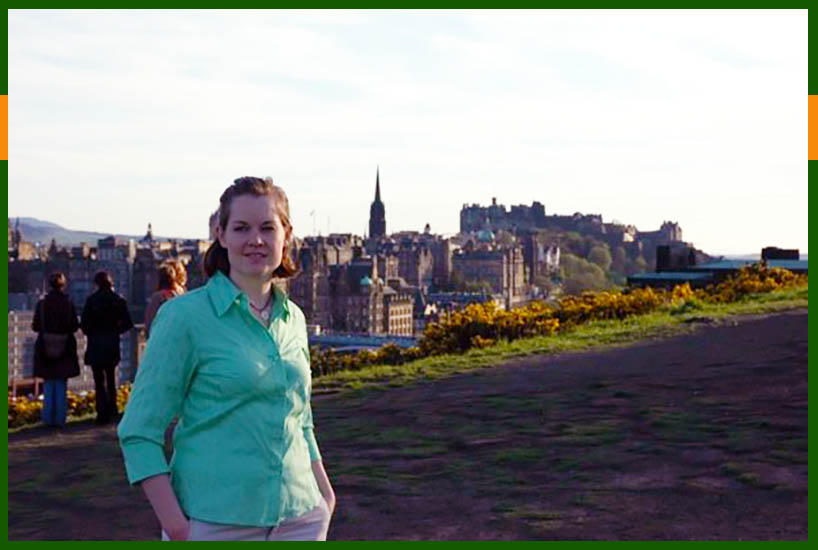
When I first got there, I had this strange feeling of: “Oh, I’m home.”
And it kind of surprised me because I’d never been there before.
But I felt like I belonged there, that I was home — in this strange city, strange country, strange customs, strange food. (Yeah, haggis is weird. I’ve tried it.)
What intrigued me as I chatted with Emmalee is that she’s felt similar things:
“I’ve always felt a connection to England: the history, literature, and all things English.
“The first time I went to England, I didn’t know that like 90% of my ancestors are from England.
“So it was really interesting to me that when I found out about my English heritage, how connected I feel to England and how drawn I am to the culture and the history and the people and everything about it (except the food, the food’s pretty terrible).
“So just going to England, I feel at peace there, like I belong there.”
What is it, Emmalee and I wondered, about being in a physical place totally unconnected with anything in our current lives, that can make us feel like we’re at home?
Surprising ways DNA connects you to your past
“It’s like what Alex Haley said,” Emmalee commented, “it’s in our marrow. I think that it must somehow be in our DNA.”
Now, that’s interesting to me, because Alex Haley referred to “a hunger, marrow-deep” – which makes me think of genetics and DNA — way before DNA became a thing for family history.
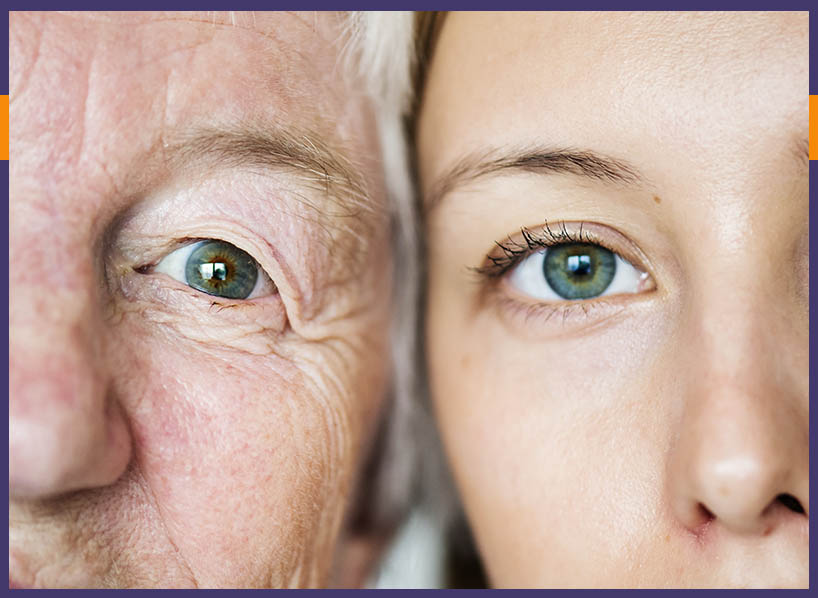
And that brings me back to the out-there idea that phobias might actually be “memories” of trauma passed down genetically from our ancestors.
OK, stay with me for minute.
The hypothesis comes from the idea that experiencing something traumatic could alter an individual’s DNA. Thus, the DNA they pass along to their yet-to-be-born children would contain the alteration or the “memory.”
(This kinda sounds all X-men, doesn’t it? Genetic mutations.)
Researchers studied mice who received an electric shock just after smelling a certain scent. So, the mice associated that scent with trauma.
Then the researchers noticed that when those mice had children, those children would show fear of the same scent.
Obviously, this theory is at least somewhat controversial, and it’s not proven in humans. But it is interesting to think about in relation to this connections topic.
Why can’t interests be genetic?
Now, I don’t want to pretend this trauma-is-genetic-memories theory is doctrine or scientific fact.
But it would seem to me that if physical things (like eye color and hair color and cleft-chins) and that mental issues (like ADHD and depression/anxiety) can be passed down genetically, why can’t our interests and talent also pass down the same way?
Sometimes it seems when we look at things genetically passed down to us – health issues, depression, and so on – that we’re looking for negative things that could impact our lives.
Like we’re saying, “Let’s look in family history to find all the reasons I’m messed up.” (Going along with all the reasons my parents screwed me up, right?)
But what if we look into our family history to find where our good things and talents and interests come from?
I love writing and always have. I majored in it in college. I was a writer and editor professionally.
When I started reading my great-grandfather Alma Salm’s memoir, I thought, “Oh, wow, he’s a good writer, too.” So maybe this love of/talent for writing comes from him.
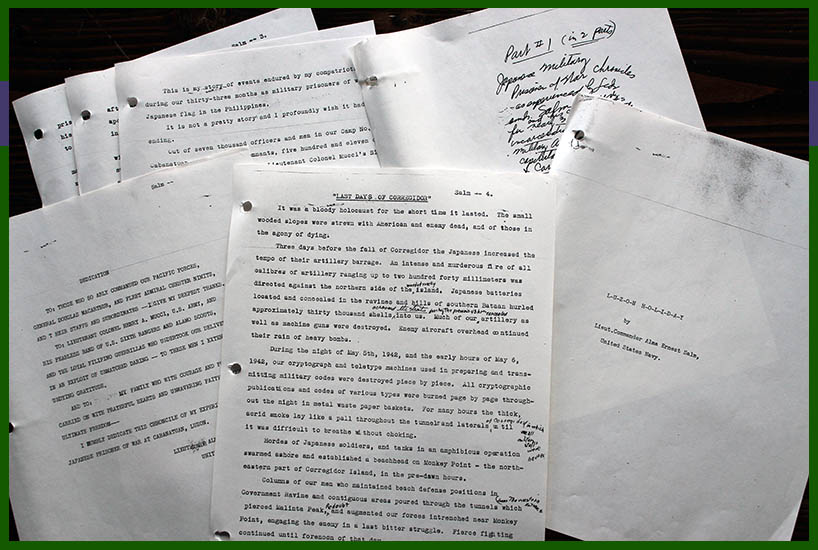
But why? Why is that important? How does that impact our life?
How to feel truly connected
Sharing an interest with someone living takes your relationship to a new level.
You can relate to things in a different way and talk about things in a different way.
Emmalee is the only friend I sit and chat about English history with, because we both love all-things England (except the food, of course). Most others would probably be bored.
But the point is, sharing interests with a friend offers a deeper connection that your friendship can be built on.
I believe discovering that an ancestor had the same interests as you helps you feel that there’s someone out there – even if they’re not in this world anymore – who can relate to you. They can understand what you’re going through, experiencing, and even take joy in the things you do.
“There will come a day when we will meet these ancestors,” Emmalee said. “And having those things in common will tie us together even more.”
Oh yeah, that’s so good.
Here’s what Henry B Eyring said: “Remember that [these are] real people to whom you owe your existence in this world and whom you will meet again in the spirit world. … Their hearts are bound to you.”
I’ve thought this for a while – if we really truly believe that families are forever and that our families will live on together through the eternities, then we should try to get to know them now. It can only help us here and strengthen our relationships on the other side of the veil.
And I’m also envisioning Emmalee meeting her 3x granddad in heaven, and they’ll bust out clogging and tap dancing.
Here’s how it impacts your self-identity
Knowing where you’re from and your people’s stories helps you gain an appreciation for what they’ve done.
It can give you perspective: “If my ancestor went through [insert experience] and overcame, I can certainly do [insert experience].”
“Knowing and understanding who I am helps give me a clearer picture of where I want to go,” Emmalee told me. “Which in turn effects my daily decisions and life.”
Yes!
Going along with that, I feel like these connections ground us, give us a strong foundation. They helps us not be blown around by every new theory or self-help or popular whatever is out there right now.
And, above all, these connections help us know we’re not alone in this world or in eternity.
5 simple ways to feel more connected
You’re busy. I’m busy. We’ve all got SO much going on in our lives.
So how can you develop these connections in your life? Here are some simple ideas:
- Start easy with a mindset shift. Let these ideas percolate in your mind and see if they take hold and if you resonate with them.
- Pay attention to what your interests are. That way you’ll be ready to identify a connection if/when you hear stories about your people.
- You could simply pray and ask for help to discover and feel those connections.
- Sometimes just knowing your ancestors’ names is a good start to feeling that connection. So jump on FamilySearch and learn your great-grandparents’ names.
- If you do discover interests or talents, tell someone about it. There’s a power in sharing – writing in your journal, telling someone. Share what the connection means to you. Share how that connection makes you feel. Share how that connection strengthens you.
I personally believe that sharing and acknowledging those connections open us up to feeling and recognizing more connections.
And feeling those connections to your people can only make you stronger.
So what do you think? Could phobias, interests, and talents be passed down genetically? When have you felt connected to your people?
Read Next
Inspire your friends
If your friends or family woudl be inspired adn uplifted by this artilce, please share it with them! We’re trying to help everyone develop a love for family history. And teh best way you can help is by sharing! Thanks!
Sources
- Henry B. Eyring, “Hearts Bound Together,” April 2005 General Conference of The Church of Jesus Christ of Latter-day Saints, found online at https://www.churchofjesuschrist.org/study/general-conference/2005/04/hearts-bound-together?lang=eng, accessed 23 October 2019.
- Richard Gray, “Phobias may be memories passed down in genes from ancestors,” The Telegraph, 1 December 2013, found online at https://www.telegraph.co.uk/news/science/science-news/10486479/Phobias-may-be-memories-passed-down-in-genes-from-ancestors.html, accessed 23 October 2019.
Images
- Image 1. Zion National Park. Licensed from Adobe Stock images.
- Image 2: English clog dancing. “The History of Clog Dancing,” The Curious Guy, found online at http://just-mygoal.blogspot.com/2011/02/history-of-clog-dancing.html, accessed 24 October 2019.
- Image 3: 50 Cent still. Comes from VH1’s Rock Doc, “50 Cent: The Origin of Me,” May 2011.
- Image 4. Me in Edinburg. From my personal picture collection.
- Image 5. Women with green eyes. Licensed from Adobe Stock images.
- Image 6. Salm’s Memoir. From my personal picture collection.


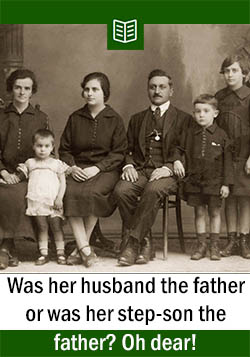
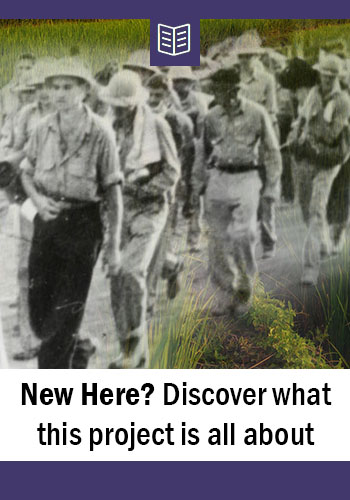

Love this. More – I love that you write it down,so well, and share it! Thanks!
I’m so glad that it resonates with you. I really do believe that understanding our family history can help us and our families be happier and stronger.